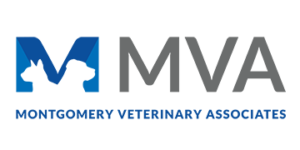Just like us, our furry friends need pet dental care! Here at Montgomery Veterinary Associates, we offer expert teeth cleaning, and we’re thrilled to be your go-to choice for this service in Carriage Hills. We’re all about helping your pets keep those pearly whites in tip-top shape, which goes a long way in ensuring their overall health. A clean set of teeth can also ward off more serious health concerns down the road.
Ready to give your pet a smile makeover? Schedule their next dental appointment with us at Montgomery Veterinary Associates, where we’re dedicated to making pet dental care in Carriage Hills a breeze!
Signs they need pet dental care
Because our pets can’t tell us when they are feeling pain or having trouble chewing, many oral problems can be easily missed. We recommend having your pet’s teeth cleaned at least once a year. This allows our team to maintain clean and healthy teeth and address any problems that may arise. The following symptoms or behaviors may mean your pet needs dental care:
Bad breath
Broken, loose, or missing teeth
Discoloration or tartar build up
Excessive chewing or drooling
Reduced appetite or inability to chew
Swelling and bleeding in or around the mouth
Did you know more than 80% of dogs and 70% of cats have dental disease by the age of 3? Dental disease is the most common health problem among pets and can lead to more serious health problems such as infection of the heart, liver and kidneys, or even become fatal. By providing regular pet dental care for your Carriage Hills pets, our team can help maintain clean teeth and an overall healthy pet.

Frequently Asked Questions About Pet Dental Care
After a health evaluation and blood work, an IV catheter is placed to administer general anesthesia and fluids to your pet so we can perform a more thorough exam and proceed with cleaning your pet’s teeth. If there is significant gingivitis present in the mouth, we also administer an antibiotic injection prior to your pet’s exam to promote healing. We perform a full mouth exam to check for bone loss, loose or broken teeth, or tumors. Then, we clean the teeth above and below the gumline to remove debris and all teeth are polished before a fluoride treatment is applied.
- Supragingival Cleaning – All plaque and tartar is removed so all surfaces of the teeth are visible.
- Subgingival Cleaning – Cleaning the surface of the teeth is only half the battle when it comes to maintaining good oral health care for pets. The most important part of the oral health procedure is cleaning below the gumline to prevent periodontal disease from developing.
- Assessment – Our team will perform a thorough examination of the oral cavity and record any abnormalities such as tongue or lip lesions, deep pockets in the gums around the teeth, and loose, broken or discolored teeth.
- Radiographs – Full mouth radiographs are taken to check for any hidden infections or possible damage in your pet’s mouth.
- Polishing – Removing plaque and other debris from the teeth causes the surface of the teeth to roughen which will increase the tooth’s ability to retain plaque and calculus. Polishing not only smooths the surface of the tooth, but also makes it more difficult for plaque to develop around it.
- Subgingival Lavage – Although scaling and polishing is necessary, it may cause debris to get caught below the gumline and trigger inflammation, so we will flush the gumline with an antibacterial solution.
- Fluoride Treatment – There are many benefits to a fluoride treatment including strengthening enamel, decreasing sensitivity, and reducing the formation of Feline Oral Resorptive Lesions due to anti-plaque qualities.
- Treatments – We may recommend and discuss treatment options for any issues we came across during the exam.
- Prevention – Prevention begins from the minute your pet enters our hospital and is one of the most important steps in the oral health procedure.



